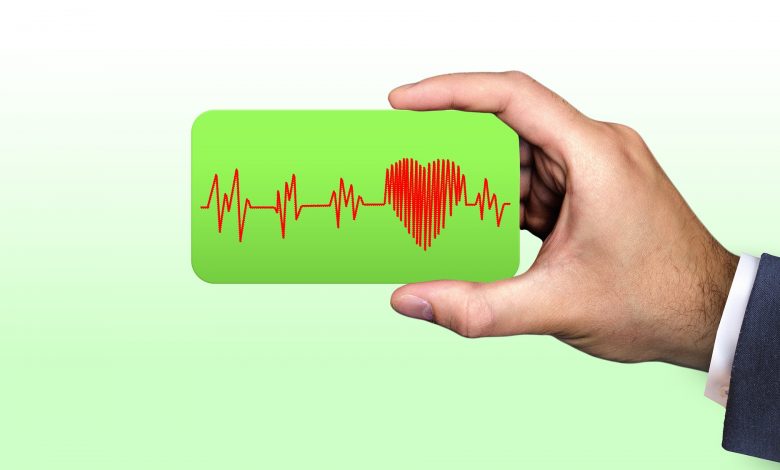
In a previous article, we answered two key questions: Firstly, what are FSA funds? Secondly, what happens to unused FSA funds? In short, employees determine the amount of medical expenses they expect to incur during the next year. After that, their employer deposits pre-tax income into an FSA account. While these funds have many advantages, you lose any unused money at the end of the year (and the subsequent grace period). Because of this, we will answer two crucial questions that could help account holders avoid this pitfall. Firstly, what is an FSA card? Secondly, what can I use my FSA card for?
What is an FSA card?
An FSA card is similar to a line of credit. Yet instead of borrowing from a bank or corporate issuer, you take out a chunk from your earnings. In turn, it takes care of medical expenses throughout the upcoming 12 months. To pay for medical expenses, employees need immediate access to their FSA funds.
During an urgent event, beneficiaries may not have the time to wait for a bank transfer or a check in the mail. Even when they cover the costs out of pocket, account holders must complete long forms and provide documentation before getting reimbursed. An FSA card, meanwhile, fills this void.
What is an FSA card’s pros and cons?
Just as with any other debit or credit card, many vendors and payment processors cater to FSA beneficiaries. For instance, if you have a fuel rewards MasterCard, you can redeem your points for cheap gas nearby at specific locations. Similarly, you may only use retailer-issued credit cards at certain stores. However, these programs also award you with discounts and promotional offers.
At times, some sellers (such as grocery stores or restaurants) will not accept debit/credit cards unless a large bank or entity issued them. An FSA card operates almost the exact same way. On one hand, it helps you manage your money so that you don’t lose the unused funds at the end of the year. On the other one, a few stores don’t accept it as a payment method, while others specifically cater to FSA cardholders.
What is an FSA card’s main disadvantages? An FSA card has the same main downsides that other card holders, in general, may face. Firstly, consumers can’t use them everywhere. In fact, the IRS prohibits that in order to prevent abuse (i.e. using an FSA card for non-medical purchases).
Having said that, Amazon and Walgreens are amongst the IRS-approved retailers that accept FSA cards for payment. For that matter, they even offer online FSA marketplaces. Needless to say, most medical clinics and hospitals work with FSA card holders. Meanwhile, pharmacies must meet the IRS’s industry guidelines in order to do so.
Interest, Fees, and Other Costs
In this regard, an FSA card is different than a traditional debit/credit account. FSAs have relatively low maintenance fees. Some third-parties that manage company benefits will only charge employers four to five dollars per month on each account. Bank and credit union checking accounts, on the other hand, have an average monthly fee of $7.38 and $6, respectively. If you deposit the money into a prepaid credit card (instead of an FSA), it will cost you $300 per year (or $25 per month).
Equally as important, employees may not even incur these costs. That is to say, your workplace’s policies determine who picks up the tab for an FSA account. Some companies pay the fees, while others pass them on to employees. In certain cases, the employer could split the cost. Either way, FSA cards have much lower expenses than debit, credit, and prepaid accounts.
What can I use my FSA card for?

The whole purpose of an FSA card is to cover health-related costs, especially co-pays and deductibles. Yet there are a few exceptions. To clarify, consumers can’t pay for several medical expenses and bills with their FSA funds. Beforehand, let’s answer the initial question: What can I use my FSA card for? Here’s the list of notable eligible items:
- Bandages and over-the-counter first-aid kits
- Contact lenses, eyeglasses, vision correction, and laser surgery
- Dental cleanings, braces, implants, and procedures
- Durable medical equipment (such as wheelchairs)
- Prescriptions and over-the-counter medication (only if your doctor recommends them)
- Psychologist visits and sessions
- Vaccinations
- Almost all other copays or deductibles that your insurance doesn’t cover for in part or in full
What can I use my FSA card for if I have a child or dependent’s account?
A dependent care FSA (or DCFSA) extends to your children and others in the household. In general, both FSAs and DCFSAs pay most medical costs that your insurance plan doesn’t include. However, there are several variations. For instance, a DCFSA card can’t be used for vision correction, dental implants, braces, and durable medical equipment.
What can’t I use my FSA card for?
Whether you have a traditional, dependent care, or any other type of FSA card, certain limitations apply across the board:
- Over-the-counter medication, which includes baby cream and pain killers, unless your doctor prescribes them
- Health or dental insurance premiums
- Baby bottles and diapers
- Teeth whitening procedures and dental floss
- Indirect medical costs, such as transportation from/to doctor appointments and child care
This further underlines our earlier point: FSA cards (including DCFSAs) mainly fill the gaps in your health insurance coverage. That is to say, it doesn’t pay for items that are excluded from most policies. Amongst them are supplies (dental floss and baby bottles, for instance) and cosmetic treatments (like teeth whitening).
To put things into perspective, let’s go back to our initial question: What is an FSA card? It’s a payment method that takes care of many medical essentials and medications at eligible stores or websites. Equally as important, it offers more favorable fees and terms than bank-issued credit/debit accounts.

What can I use my FSA card for? While there are differences between covered FSA and DCFSA items, they are very minimal. Otherwise, both of the funds should take care of most of your family’s health care bills, apart from insurance premiums and other exceptions.
In short, an FSA card and a line of credit are somewhat similar. A credit card helps you manage your finances, but spending too much lowers your FICO score. An FSA card also helps you manage your finances because spending too little (and losing the unused funds) lowers your income.



